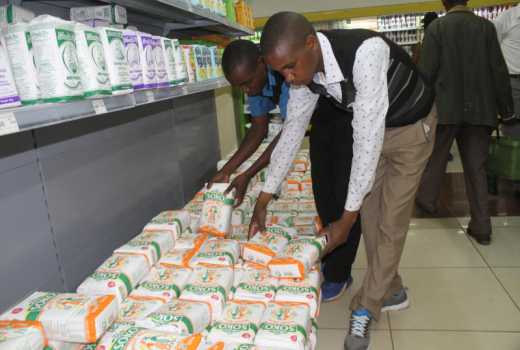×
The Standard e-Paper
Fearless, Trusted News

Greedy millers are over-charging consumers by at least Sh25 for a two-kilogramme packet of maize flour, pocketing billions in tax waivers aimed at shielding the poor from expensive unga.
Poor consumers are paying as much as Sh155 a packet, barely two weeks after the end of a subsidy programme that saw them buy the same quantity of the foodstuff at Sh90 and a kilogramme at Sh47.